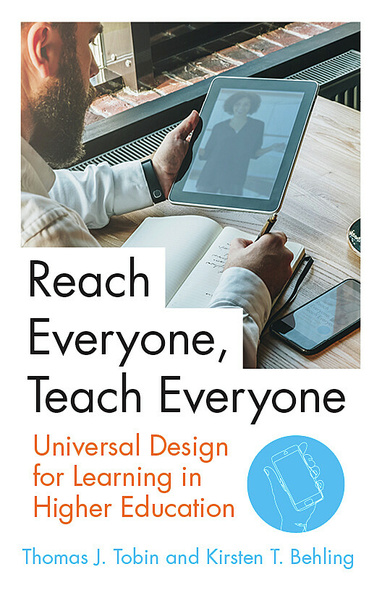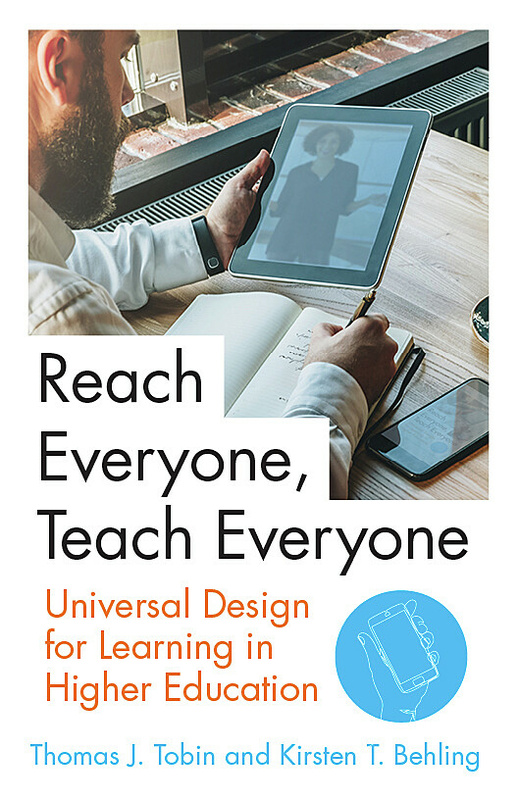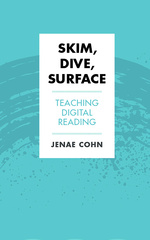Reach Everyone, Teach Everyone
Universal Design for Learning in Higher Education
Advocates for the rights of people with disabilities have worked hard to make universal design in the built environment “just part of what we do.” We no longer see curb cuts, for instance, as accommodations for people with disabilities, but perceive their usefulness every time we ride our bikes or push our strollers through crosswalks.
This is also a perfect model for Universal Design for Learning (UDL), a framework grounded in the neuroscience of why, what, and how people learn. Tobin and Behling show that, although it is often associated with students with disabilities, UDL can be profitably broadened toward a larger ease-of-use and general diversity framework. Captioned instructional videos, for example, benefit learners with hearing impairments but also the student who worries about waking her young children at night or those studying on a noisy team bus.
Reach Everyone, Teach Everyone is aimed at faculty members, faculty-service staff, disability support providers, student-service staff, campus leaders, and graduate students who want to strengthen the engagement, interaction, and performance of all college students. It includes resources for readers who want to become UDL experts and advocates: real-world case studies, active-learning techniques, UDL coaching skills, micro- and macro-level UDL-adoption guidance, and use-them-now resources.
Engaging, well researched, and accessible. The ‘UDL in 20 minutes, 20 days, and 20 months’ exercises are an especially interesting framework for the planning and implementation of UDL on campus.’
Joseph W. Madaus, University of Connecticut
Practical and rich with strategies, this book will leave educators understanding why UDL is important for their community to adopt and how to get started implementing so that all learners can achieve high learning outcomes.’
Allison Posey, Center for Applied Special Technology
Thomas J. Tobin is the conference programming chair at the University of Wisconsin–Madison and the author of Evaluating Online Teaching and Copyright Ninja #1: Rise of the Ninja.
Kirsten T. Behling is the director of student accessibility services at Tufts University and an adjunct professor at Suffolk University, where she cofounded and teaches in the graduate certificate program on disability services in higher education.
Acknowledgments
Introduction
Part 1 Where We Are Now
1. How Universal Design for Learning Got to Higher Education
2. It’s the Law . . . Except When It Isn’t
Part 2 Reframing UDL
3. Meet the Mobile Learners
4. Engage Digital Learners
5. Adopt the Plus-One Approach
6. Coach the Coaches and the Players
Part 3 Adopt UDL on Your Campus
7. Expand One Assignment
8. Enhance One Program: UDL across the Curriculum
9. Extend to One Modality: The Online Environment
10. Embrace One Mind-Set: Campus-Wide UDL
11. Engage! The UDL Life Cycle
Coda
References
About the Authors
Index







